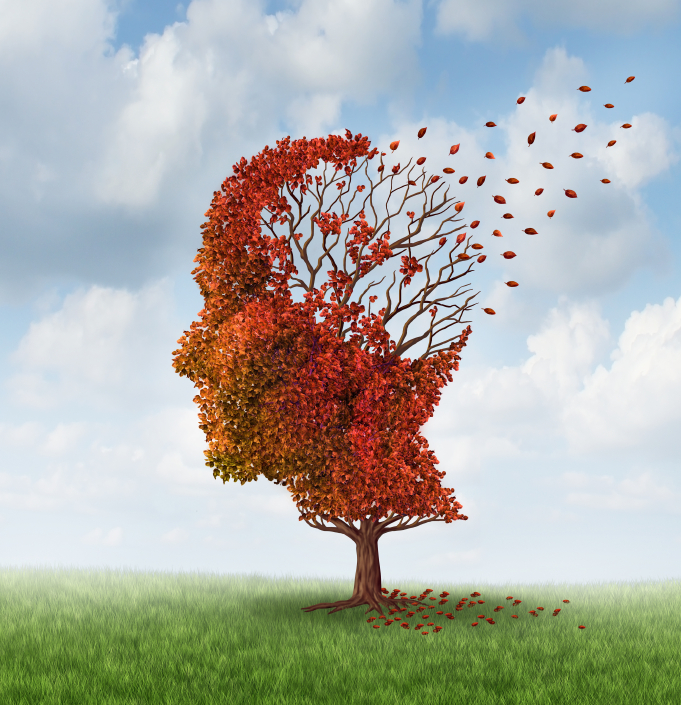Her body is so slight now at 80 pounds. Bones pushing through paper skin. How is it that her eyes have grown so large while her body and mind devolve? One wonders what she sees with those once beautiful eyes, now void, desperate. Perhaps one prefers not to know. Perhaps I prefer not to know. Does she see us for who we really are? It's in all the best literature: the madwoman who sees everything, and prophesies, foretells our future. And, it's true, I think, as I stare brazenly at my grandmother: her body, memory removed and reconfigured, tells my future. At least that's what I'm afraid of--that I am seeing her the way I will one day be seen. My mother, though--her fear sinks a layer deeper into her than mine does. I see that, even though she doesn't say it.
If my grandmother's the madwoman I've found in so many narratives, I want to know what it is that she knows. Does she know that I told myself I wouldn't go see her again after the last time? Does she know how brilliantly the shame bloomed inside of me when I admitted to myself that I didn't want to go back? That I didn't want her to mistake my hand for a piece of chocolate again? That I didn't want the expression of horror, etched as deep as the bones in my face, to scare her? I remember the days right before she was taken to a home. Do we really dare to call such a place a home? My grandfather, hip shattered, lay in the hospital, and she, his wife, wandered aimlessly around my parents' home.
Daddy? Where did Daddy go?
She kept asking that question, tugging on the sleeves and pant legs of anyone close enough, fiddling anxiously with the buttons on her holiday flannel pajamas. When the wandering became too much for us, we made her sit in a wheelchair. We felt guilty. We made excuses. My brother and I broke into a fit of hysterical laughter after looking for ways to entertain her, and finally settling on a ridiculous impromptu dance routine. Grandma, do you like our dance? Laughter always hides something. Some people, some families, are better at the hiding part than others are. Horror, in this case, is what we hide.
She hasn't known us for some time now. But that night, the night we danced our ridiculous dance for her, she reached for my hand and squeezed it with her little claw-like hands and said, suddenly: don't forget about me, don't forget about me. As if she'd had the briefest moment of clarity, as if she'd caught a glimpse of what was happening. The shame bloomed inside again, because I realized that I want to forget.
He'll be back, we'd say, when she asked for "daddy" hundreds of times, over and over and over and over. Don't worry. The false reassurances we often give young children coming back to haunt us in old age, rounding out our sharp little lives in ways we'd never considered. We would like to protect her--from what we have no idea.
I keep waiting for that call, my grandfather says, a few months later as he recovers from his fall in my parents' home, while my grandmother becomes smaller and smaller in a home that isn't her own. And suddenly I can't decide which breaks my heart into more pieces: my grandmother, with her memories jumbled and fragmented; or my grandfather, severed from the woman with whom he has spent his entire adult life, his memory and mind intact enough to feel pain and fear and guilt and the threat of complete loss.
And I think to myself, I spent a good portion of my life waiting for those calls--expecting them at every turn. My mother? My father? One of my brothers or my sister? What foolishness. How vile the memory of such fears becomes when I see what it means to really wait for that call. When abstract fears become known.
My mother, then. I feel tightness in my chest when I imagine what she is experiencing, as she cares for her elderly father and his very sad heart, and also begins to grieve for a mother who is simultaneously alive and dead. This is what makes dementia and diseases of the mind so horrifying: loved ones are necessarily in a constant state of mourning. We face the loss every day that we stare into blank eyes. It faces us, taunts us. But death is yet to come so we have nothing to bury. We aren't allowed to move on just yet. We simply mourn daily; it becomes our most careful routine. I've been watching my mother mourn for quite some time now--this while she is pulled by other looming losses and struggles having nothing to do with my grandmother. Why must the universe unload on us all at once? There is no divine plan. This is life. This is our life.
I'm thinking of all this, a few days into Passover, and I realize that the sea doesn't always part. We don't always move through the water without drowning. Some of us will make it--we swim hard, or we float miraculously. But others will drown.
Tuesday, April 07, 2015
Subscribe to:
Posts (Atom)




